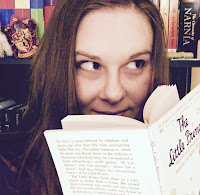Call it whatever you want--as a writer, at some point, you're going to have to sum up your story in a few short, hooky paragraphs. Starting out, you'll need this fine-tuned pitch or query blurb when you're approaching agents, then publishers (though once you have an agent, they will often help you position it to perfection!), and ultimately, if you land that elusive book deal, it will likely be the beginning of what copywriters will eventually turn into magical back cover copy a.k.a. those enticing lines on the back of book that make you decide to pop it in your cart instead of returning it to the shelf.
Many authors find it easier to write a multi-page synopsis than a shorter pitch (not to mention those one-liner loglines!), though I hear complaints about having to write all of the above. It's true that writing a pitch or synopsis requires a different skill set than writing a novel. A novel is pure creative whimsy while a pitch is a marketing piece. But that doesn't mean both aspiring and experienced authors don't need to know how to do it all. I know I don't have to tell you how important self-marketing is in today's publishing landscape. In fact, it really couldn't be more important. It's not enough to write your book, you need to be able to sell it--first to an agent, then to a publisher and then to a slew of readers, which might end up being the hardest sell of all.
Because so many authors find it so hard to writing a pitch, they often wait until a book is complete before they write it. Makes sense, right? Why write a blurb about a book when you don't even know how it's going to end? Well, my answer to that, being an outliner, is that you probably should have an idea as to how it's going to end, at least enough of one that you could write an enticing couple of paragraphs. For the first three novels that I wrote, I actually found it helpful to write the pitch first, with the primary focus on: what is the primary hook of this story? Were they perfect representations of the books I was about to write? No, but there was also nothing wrong with tweaking them as I went. The reason I found writing them first so helpful is because they helped me to stay focused. Outlines are great. I'm a big fan. But sometimes when you're writing, it's extremely helpful to read a succinct snapshot of what's at the heart of the story. It's always helped me to stay on track. In fact, the blurb I have posted here on the site for Skin Deep is extremely close to the original version I wrote before I dove in on chapter one of that book.
For my current WIP, tentatively titled You'll Never Know Me, I found myself at a complete loss trying to write a pitch before starting the story. It was the first time that had ever happened to me. I knew what I wanted the story to be about, but I had a difficult time coming up with the right words to describe it. You'll Never Know Me is my first real foray into writing straight-up contemporary YA and I think that had a lot to do with my inability to write the blurb up front. With both Unnatural and Skin Deep, I knew the hook. Each is a fantasy and the hook that drives each story is really clear. With YNKM, it's a far more character-driven story, and the hook seemed far more intangible at first. But now I find myself sitting close to the halfway mark and suddenly, everything seemed to fall into place. I just needed to hit the point in the first draft process where the big picture started to really come together.
Though my first dip into the contemporary YA pool has been more of a slow wade than a dive, having a blurb (which I can now reference) prepared gives me a lot more confidence in the direction I'm headed. I feel more steady about everything that's yet to be written. And if for no other reason (though it's just nice to have it nailed down), I think that's an excellent argument for forcing yourself to write that pitch/query/blurb/whatever you want to call it well before you finish writing the book. You might just find it pulling you up and over when that inevitible case of writer's block hits.
So without further ado, here is the (working draft) pitch for my first contemporary YA, You'll Never Know Me:
Louise Dunn hasn't recognized the world around her since the morning after her brother Neil’s senior prom, when she discovered his drowned body on the front lawn, with no explanation for how it got there. Buried beneath a grief she can’t seem to surface from, she stumbles through the ensuing summer, seeking solace in anything that can’t get inside her head. Then she discovers a hidden journal in Neil’s room, along with a stack of unfamiliar comic books, and everything changes.
It was no secret that Neil was gay. He’d come out the year before his death. But as Louise delves deeper into his pastimes and relationships, she discovers that maybe she didn’t know him as well as she thought, and what’s worse—things might’ve been different if she had. Between a series of unsettling encounters with Neil’s ex, and a sudden, unexpected connection with Matt, the fanboy clerk at the local comic shop, Louise finds she’s increasingly unable to ignore the tragedy that’s slowly suffocating her, and the walls she’ll have to tear down before she can start to live again.

































